|
Stories in the Springfield Business Journal and State Journal-Register have described staff cuts at Memorial Hospital, and that the Valet Parking Program is closed. Memorial’s decision is wrong. There are three ways to make money; one is to bring income; another is to plug the leaks in the operation which drain income. Read this and you will arrive at the third way to make money. Think of a hospital like a swimming pool; adding water only works if it stays in the pool. Cutting Valet Parking is the equivalent of cutting 8 holes in the pool’s lining! The Valet Parking Program produced material benefits which shield, the income-producing, aspects of the hospital’s operation. The State Journal- Register’s article included interviews with users of the valets who mentioned some of the issues described here. The following observations are the accumulation of my 17 years as a Medical Visit Companion through Senior Sidekicks. My work repeatedly took me through both Springfield hospitals. When valet parking was established, its founders may not have realized all the ways it would add value to Memorial. Now we will learn of these benefits by their absence. Drain One: Traffic cop needed. Many people converging on a small area can cause traffic jams and delays. Add infirm patients to the mix, and safety concerns rise. This situation reminds me of navigating O’Hare airport. O’Hare has officers; Memorial didn’t need them because the valets coordinated ramp traffic. The hospital will need to hire off-duty officers: an added cost. Drain Two: Missing point of contact. Valets performed that function for the entry area. They answered questions and gave directions: freeing other staff to do their jobs. Now, no one coordinates. The hospital will be forced to re-hire part of the former valets to monitor the area, another added cost. The valets knew who to call if a patient appeared to be in distress, a mishap, or a traffic accident. Who is in charge now? It’s another rehire cost. Drain Three: Rising liability costs. Injury prevention became one of the defacto tasks of the valets. They made sure the brakes are actually set on the wheelchair before the patient is transferred. Valets watched for trailing clothing which could get caught in the wheelchair wheels. Simple things like these prevented tip-outs and injuries. Now we will see how many incidents were previously prevented! Valets also assisted when a driver appeared to be untutored or infirm. (Now, who will help a 6 ft, 250 lb, post-op, man that is being assisted into a car; by a 5 ft, senior woman?) I predict that Memorial will see a rise in the rate of additional injuries to patients and their families. More incidents push the liability insurance through the roof; another unnecessary, cost. Drain Four: Loss of society causes loss of manageability. When the valets retrieved the cars, the family stayed with the patient. Patients can react to their procedures. I have observed some patients that seemed disoriented, looked exhausted, and sometimes shivered, even when the weather is warm. Occasionally, patients become agitated. Family knows the patient and how best to respond. Thus, a small situation didn’t become a big scene. Now these situations will drag other staff away to respond. The loss of valets forces the family away from the patient to hunt for the car. Drain Five: Delays and congestion in the reception area. Valets reserved a certain area of the lot for their cars which cut the response time. No valets=need for a designated area. Thus, a family must trek through the lot for the car. Since everyone must trek, moving patients through the transport area will slow down. This will lead to delays in getting patients out and crowding in the patient waiting area. How does Memorial plan to keep patients at a safe distance from each other to prevent a rise in infection rates? How does a rise in infection rate affect to the Memorial’s licensure? Not all costs come in money form. Drain Six - Part 1: Traffic jams due to delays. The family must leave their cars in the ramp to retrieve patients. A family might leave the car running, possibly with an open door. Families may not have set the parking brake even though there are two hills at either end of the ramp. Drain Six - Part 2; Preventable Issues; A. An unset parking brake leads to a rolling, unmanned car. B. A passing car clips an open door. C. An item left on the seat (cell phone) goes missing. D. Cars with two open doors (second one opened for the patient) take more space; crowding and already crowded drive. Do any of these scenarios remind you of O’Hare? No valets = more traffic jams and more accidents. Hired officers will be needed because the valets, who prevented them, are gone. Drain Seven: Accidents caused by family rying to avoid the parking ramp; Eventually, crowding and congestion will give rise the use of ramps or stairs by post-op patients; leading to incidents. Memorial’s front was never designed for frail patients to negotiate. The valets ensured that patients would leave the hospital quickly, and in cars. Now, some families might try to walk the (patient) to the parking lot! Another rise in liabilities=another rise in costs. Drain Eight - Part 1: Missing wheelchairs and accidents; The scarier scenario would be the patient, in a hospital wheelchair, piloted on their maiden voyage by family! Who will stop that untrained family, or prevent them from taking hospital wheelchairs? How would some of the patients make it all the way to the car without a wheelchair? Drain Eight - Part 2; How many times have you seen grocery store carts left beside the disability parking places? The whole Memorial lot becomes a defacto disability parking place. Like a grocery store, Memorial must hire staff to collect wheelchairs from the parking lot. Have you ever seen a homeless person who “adopted” a grocery cart? Does Memorial believe no one will “adopt” a lonely wheelchair from a parking lot? Add missing equipment to the other, above-listed costs incurred by removing the valets. Keeping the valets would have been cheaper for Memorial. Now operations will cost more because the valets are gone. There are actually three ways to make money, bring income, plug income holes and avoid making short-sighted decisions. Memorial has made a short-sighted decision by removing the valets. Valets don’t cost as much as they pay. What worries you about these cuts? Do you know someone who will have trouble getting care because they can’t access it? Do you have any ideas to solve this problem? We want to hear from you. Contact Senior Sidekicks, on the following form. We’ll gather your responses. Your feedback will guide our next steps.
0 Comments
This blog is prompted by an article I recently read, "Is aging a disease? Treating it like one could be worth trillions, study says," by Hannah CritchfieldTimes staff I'm old enough to remember when childbirth was also considered a "disease". Doctors, usually men in those days, did not think women needed to know anything about the birthing process. Midwives had been pushed out. Women were given an anesthetic that caused the mothers to bang their heads. To "treat" this, the delivering women were given football helmets to wear! The Lamaze Method was really a revolt in answer to this revolting scenario. Childbirth today is much more individualized, humane, with mothers who are knowledgeable about what is happening. Midwives and Dullahs are back in the process. Childbirth is not a disease. Old age is no more a disease than pregnancy or childbirth. I know this both from 50 years of working with seniors and as one experiencing age myself. Old age is a stage of life only. Like any other life stage, people can develop diseases. Some conditions are the result of genetics. Many are the result of lifestyle choices or environmental factors. Some conditions resulted from poor medical management. Younger people could also have diseases for any of these same reasons. Healthy people of any age will perform better for longer; including seniors. The change in old age is a loss of resilience. I compensate for that by modifying my lifestyle and paying attention to changes. I jump on anything I see immediately. This country MUST change to a medical management model, aimed at early intervention and prevention. Such a model begins at birth to be most effective. Waiting until old age, then labeling that stage a disease, is the wrong term: it should be labeled our society's failure! As one of the women who wanted to be in charge of the births of my two children, I declare war on anyone who wants to turn yet another natural life process into a disease!! We burnt the long line bras, (and draft cards) we fought rules requiring us to get a man to co-sign our home loans, we demanded the right to run for office; not for coffee. 76-78 million of us will not accept being declared a disease!! As we march into our future, more and more of those who live longest will be women. We are the women (and men) who said "No" to many things; this will be the next one. We may be older and wider, but our spirit hasn't died. Instead, recognize us as the pioneers in a demographic revolution. This is the first time in history we have had so many people living to such later ages. We've had babies for millennia; we haven't had as many elders. We are designing this pathway in life. Composing a new future means rewriting some other parts of life: since life's horizon is longer, how do we help younger people to plan for a 3rd age? What role do we assign to elders? Golf for 40 years? No way! In my 50 years of work, I saw these things helped older people to remain healthy and functional; Purpose, Meaning, Connection, and Value. Therefore, we are seekers after these things. That is the only label I will accept. Care consultations help families avoid getting lost in the maze of payment options for elder care.
This blog series illustrate the ways a care consultation can save families money, time and trouble. These stories are drawn from our experience with families and their elders: identifying information has been changed. Paying for elder care is like making one’s way through a maze. In a maze, you can backtrack and take a different turn and it will only cost you time. In elder care, the wrong move can be very costly. Annie’s Mother was diagnosed with cancer and needed treatment. Following treatment, she was sent to a rehabilitation facility and then went home with help. All went well until she fell. The paid staff found her on the floor and sent her to hospital. Annie arrived to find her Mother in the ER. Tests showed she was dehydrated, poorly nourished and had not taken all of her medications. The hospital was overcrowded and so was the ER. Mother didn’t even get a room in the ER for 24 hours. The staff began treatments and Mother improved. Rather than sending her home, Annie decided it would be better to return her Mother to the rehabilitation facility. Annie also considered moving her Mother so she would not live alone to avoid future problems. This was especially important because Annie’s job took her all over the state. In an emergency, she might not return quickly. Annie didn’t review her Mother’s Medicare coverage. Mother had only been in the ER under observation. She had never been admitted to the hospital. Medicare covered many parts of her ER treatment. If her Mother had been admitted and had stayed long enough in hospital, she would have qualified for rehabilitation: she didn’t. Annie received the Medicare determination letter several weeks later: not covered. Annie returned her mother home, with more help, medication supervision, and more worry while she was on the road. She had to pay $18,000 to cover that stay. Consultations don’t cost, they pay. This blog series illustrates the ways a care consultation can save families money, time and trouble. These stories are drawn from our experience with actual families and their elders: identifying information has been changed.
Consultations help avoid mistakes; like ordered work boots but getting pink shoes with 4 inch heels Mike emailed me about a consultation and left his phone number; I called. “It’s about my Dad, he’s been losing it since my Mom died”, Mike said. I asked what he meant by, ”losing it”. Mike described his father’s problems with paying bills, keeping his place clean, and forgetting to take medicine. I explained how our consultations worked. “I just want to know which nursing home to put my Dad in!” he exclaimed. His tone seemed irritated. I explained that there were many kinds of care, some were covered by Medicare or Medicaid and some were not. Consultation is about taking various measurements and to find the right fit. Let me show you why I can’t just give you the name of a nursing home, I explained. Suppose you ordered a pair of shoes. When you opened the box, you found a pair of pink, 4-inch heels. Would those work for you? Before anyone buys shoes, we learn our shoe size and decide how we will use them; for socializing or construction work. We know this because we have purchased shoes before. Care consultations help families gather the right measurements so elder care fits their needs. Getting the right care for someone is usually a first-time experience for families. There are many kinds of care and different ways to pay for it. It’s as important to take measurements in your Father’s case as it is to get the right shoe size. It’s as important to learn if his condition might improve or if he is unlikely to improve. It’s really important to look at how his care will be paid. I can help you get those measurements and prepare you for the process. Our consultation cost is a fraction of the cost of care. You could return the pink, 4-inch heels for a refund: you can’t get a refund on elder care. Covid-19 has required us to protect ourselves by wearing masks. Sadly, masks interfere with hearing aids. Thus, those who want to hear must contend with protection that makes hearing aids come loose, fall out of the ear, or tangled with the hearing device. That frustration could lead to quitting the mask or quitting the hearing aids.
We need both. Numerous research articles have documented the connection between maintaining one’s hearing and keeping one’s memory. Hearing aids are for more than hearing. On the other hand, the CDC guidelines are quite strict about wearing a mask to protect ourselves from Covid-19. We will need masks until we can develop an effective treatment and or a vaccine. That could be years. In Help! My Face Mask Is Getting in the Way of My Hearing Aid, AARP offers some ideas. While these might do for now, we should consider developing an easy-to-use, simple, device that does the job. If we can develop safety pins and zipper; we make a better device. Senior health studies show that social isolation is as important health as flattening the Corona-19 virus infection curve in seniors.
OPINION: It’s Time to Flatten the Loneliness Curve for Older Americans, by Marc Freedman and John Gomperts, was published in Next Avenue, April 20, 2020. The article discusses the impact of social isolation on elder health. This factor was an issue before Covid-19. However, the quarantine has made their social isolation even worse. The article references other countries’ methods of recognizing and responding to social isolation and encouraging elder social engagement. It offers several possible methods to facilitate the development of programs in the USA as engines to promote a better quality of life for seniors and for society in general. Did you know that grants were made last year to develop a Social Isolation Task Force and create a public education program? These grants were offered to all the state agencies that operate under the mandate of The Older Americans Act. I was on one of those task forces in my state. The assumption was the public wasn’t aware of the magnitude of social isolation amongst elders. Another assumption was the public wasn’t aware of the effects of social isolation on senior health and cost of care. Covid-19 changed all that. We‘ve all had a crash course in the experience of social isolation: the Stay-at-Home orders. We’ve seen people reacting, sometimes threatening violence, in a push-back against such measures. Children have suffered socially, emotionally and in their education as a result of being isolated from friends and school. To combat Covid-19, social isolation was one of the few measures we could employ. While we intended to combat the virus with isolation, we didn’t intend to isolate elders before Covid-19. Our society’s systems just didn’t address elder social isolation. Our society did not face social isolation before because of three factors; our original population, our history, and our lack of a collective memory experience. Our population was largely imported, usually young adults and their children. Later, they might send for the elders in the old country, or not. A sea voyage could be quite stressful on an older person. Thus, young people settled here. Later, another generation of young people left for the next new frontier. Our history shows that elders were left behind; again, and again. As a result, our focus was a succession of new frontiers. The USA never developed a role or task for elders. Today, our old frontier is closed. It’s time to bring society into the new social frontier: one in which we recognize we are a multi-generational country. There are gifts from each generation. We need to develop a role, and a function that recognizes the value of elders: a living history, perspective and experience. We also lack a collective memory of the elder’s journey. We all remember things from our childhood; many of us may not “remember” things from our elder hood; unless we have made that journey ourselves. Society hadn’t experienced certain aspects of aging, like social isolation, until now. We should view stay-at-home orders as our chance to learn what life is like for seniors who are forced to stay-at-home. What puts elders in that position? Their health may not permit frequent trips outside the home. Other elders are trapped at home because they can no longer drive. Public transportation may be too infrequent, too strenuous, or non-existent. Some elders find that vision or hearing problems interfere with socializing. We have few forums in which all generations come together. Religious institutions fill some of that gap but they can’t cover all the bases. Our neighborhoods are often age-segregated. Schools group children into smaller age cohorts: this is not the era of the all-ages, one-room school house. We build age-segregated housing only for elders. How is anyone to learn about the elder journey if our opportunity for observation and interaction are taken away? Covid-19 has given us a gift in disguise; we all shared some of the elders’ social isolation predicament. We reacted vehemently to these restrictions on ourselves. Now we know what they feel. The recommendations made in this article should be implemented. Let’s learn from this. As the old song says; ”Someday, some d-a-a-y, we’ll be together. Yes we will, yes we will...” Has this happened to you? “I took groceries to my Mom. She wanted have coffee with me. I’ve tried to tell her I couldn’t, but she just doesn’t get it! I don’t know what to do”!
Caregiving is a demanding process and Covid-19 adds more demands. Caregivers still try to respond to their loved ones even under new circumstances. In the past, the caregiver could might take the elder shopping; not now. Shopping was an outing, a chance to socialize, and a chance for the caregiver to assess how the elder was doing. Now, we wear masks and are encouraged to shop as quickly: a-l-o-n-e. We only have a fleeting glance at our loved one on food drop-off. We can’t just pop in the house or care facility to check on things for ourselves. We must rely on reports from our loved one, the staff or (sometimes) the news. Imagine reading the news and learning your parent’s facility has a Covid-19 outbreak! Caregivers revealed they felt guilty before, it’s especially true now. Some guilt seems to be rooted in the feeling, “I can’t do anything!” Yes, you can. Caregivers used to worry about elders taking medicine properly or eating regularly; now worries include possible exposure, illness & death. To add to these concerns, seniors seem to want more from the caregivers. They ask caregivers to run more errands or ask for things not appropriate to their diet or welfare. An elder asked me to try to take money out of an ATM with his bank card! Why are elders making more or different or even illegal requests? There are a couple reasons. First, caregivers make the distinction between the Covid-19 as the cause and the changes in our lives as the response. Sometimes, that distinction is not as clear to the elder. “They just don’t get it”; is a sign to caregivers that the senior hasn’t understood in the first place. Everybody has studied something that felt very different when actually experiencing it. Think of your first time behind the wheel of a car. No instruction manual prepared you for that feeling of your foot on the accelerator. Childbirth classes help, but they can’t communicate what it feels like to give birth to a child. After the experience, we “got it”. Making it real,related to the senior’s early experiences, helps them to “get it”. Second, caregivers understand the impact of this pandemic process. So, instead of doing more errands, we need to take the time to help seniors grasp the process. We feel guilty because we can’t take them out, or can’t give them a hug. So, when they ask for more and more, we do it because it makes us feel better. Have you noticed that more errands just aren’t enough? That’s because errands don’t fill the senior’s real need: finding meaning and support. A conversation, in which you focus on their early experiences, such as quarantine, helps them feel the reality of current circumstances. Explanations don’t work as well as a trip down memory lane. Just making the effort to help them understand the experience will fill their need for direction and support from you. Your senior relies on you in ways they can’t express. When they feel like the world has gone crazy, they look to you. When you show effort to help them understand (not expertise) they become calmer and you’ll feel better too. Third, just saying NO, puts limits into their lives and is another way to calm your senior. When times are uncertain, a clear guide creates a sense of stability. They sense that you are looking out for them and you are their leader through these times. Your firm guidance gives them clarity. Then, you have more time and the emotional space to feel less guilty. Caregivers need not do e-v-e-r-y-t-h-i-n-g; just the right things. Fourth, a rule of thumb for elders with dementia is; the more dementia, the longer “emotional antennae”. Your seniors are highly attuned to your moods. They just can’t process the information the way they used to. Covid has shifted everyone’s life. Elders sense that you are struggling to adjust your lifestyle. Caregivers may not want to show these struggles. They feel guilty these the elders depend on their care. The elders already know. When you put words on your feelings, it’s like putting on an oven mitt; now you can handle hot stuff. Your words become the elder’s way to express their own feelings. Keep it simple but keep sharing. Remind them of any major adjustments they had to make in the past: WWII rationing, Great Depression job losses. Emphasize how they made it through hard times and the example they were to you. Thus, the caregiver becomes the mirror that reflects the senior back to their best self. Finally, remind the elder this is only for now, it will not last forever. As the old song says: “Some day; s-o-m-e-d-a-y, we’ll be together (yes we will)! Corona Virus-19 is not your parents' quarantine. Before vaccines, quarantines were a common event. Your senior may have lived through several of them. with the passage of time, the anxiety and social disruption may have been lost. All that remains in their minds is that they survived. I've met some seniors who think this is just another flu. They believe that, because they've lived this long, they're immune. It's been a challenge to convince them that this virus has an impact closer to that of the 1918 Spanish flu. I usually ask them if their parents ever discussed the Spanish Flu. Then I draw the comparison.
I've also had to explain that our immune systems change with age. We all know hair turns white/gray with age but not all changes are equally visible. The senior may not realize that they may succumb to this disease because their immune systems are affected with age. I share these points to forewarn caregivers that your senior my see this disease very differently than you do. What's in your senior's mind? If the senior doesn't get the message, they will be more likely to get the disease. Stay well and set a good example; wash your hands with your senior. Thanx, Sara The Strange Psychology of Stress and Burnout, which appeared in BBC WorkLife’s November 17, 2019 post, discusses the relationship of stress to Cortisol; important. The article described several results or diseases that begin with exposure to prolonged stress. It also mentioned some situations that can cause stress but left one out; caregiving! Already, 34.9 million people are self-identified caregivers. In addition, some people are starting to do caregiving and don’t realize they’re in this new role; yet.
This article shows the photo of a man; yet 66.5% of caregivers are women. The photo shows multiple phones. Yes, many caregivers have spent time on the phone to coordinate care for the elder. However, caregivers face the competition of simultaneously dealing with home, job, and possible child care while doing caregiving! The focus of the article is on job-related stress. Caregivers bring their stress to work with them. Thus, what looks like job burn-out might be a result of simultaneous stressors; job and caregiving. The remedy described in the article involves changing the perception of the person under stress; Cognitive Behavioral Therapy and changing jobs or shifting responsibilities. Sadly, these are not usually available to the family caregiver. She may not have insurance coverage for therapy. Group insurance plans may not recognize family caregiving as a stressor worthy of intervention. How does the working caregiver access therapy? She has no “off-duty” time. She goes from the career job over to the home “job”. It’s time for all of us to make sure caregivers as SEEN and heard. The Reuter's article, U.S wages lost to unpaid family care to hit $147 billion by 2050, describes lost wages and pressure on caregivers to switch to part time work or quit all together. These are definable numbers which the article describes well. One doesn’t hear enough about these issues and costs in the news media. I call upon anyone who knows a caregiver to insist on better public discussion on these caregiving issues/ costs/pressures.
I've always worried that caregivers also lost opportunity as well as wages. They are less likely to be offered new projects at work which can polish one's resume. They can’t take the lateral move which puts the employee in line to move up in a branch of the organization. A promotion comes with more demands on time and a different schedule. How can the working caregiver manage that? Promotions may mean a move out 0f town; how does a caregiver juggle that? So less chances to rise in a career. In addition, caregivers suffer hidden damages to their careers. Just taking repeated PTO (Paid Time Off) casts a shadow over one's career. Eventually, PTO runs out. When PTO runs out, the employee is left with FMLA (Family Medical Leave Act). That is usually unpaid. The employed caregiver must consider loss of income along with caregiving pressures. I'm also a member of Society for Human Resource Management (SHRM), and read their daily dispatches. It appears that employers are more comfortable allowing the employed caregiver a block of time, like a week or two, to handle a health crisis. Piecemeal time tracking is another matter. There are some tracking systems, however, these seem to be evolving methods. The employed caregiver may need to use her time in piecemeal form. Perhaps she takes her lunch time to supervise the elder taking medications. Her commuting time would be deducted from PTO or FMLA That's the typical shape of elder caregiving, a mosaic of times and tasks squeezed together throughout the day. So both the employed caregiver and her employer are both carrying this process. The caregiver is doing the tasks and the HR manager is handling the administration. This produces an implicit time cost to the employer. Why would the caregiver’s boss consider her for special projects, a move, or a promotion? These would demand more of her time and the employed caregiver doesn't appear to have any time. In order to develop one's career, one must appear to be ready and willing as well as able. No employer really knows whether any employee is truly available. However, a string of PTO/FMLA requests create an image of less availability. It’s a subtle form of job “loss” that doesn’t show on the paycheck. Only the US and England have a patchwork-to-none system for dealing with our aging population. Other European countries have created caregiving support systems. Why aren’t we looking at them? |
Author "A Senior Moment" is written by Ms. Sara Lieber, owner of Senior Sidekicks. Ms. Lieber has over 30 years of experience in senior care. Archives
March 2024
Categories
All
|

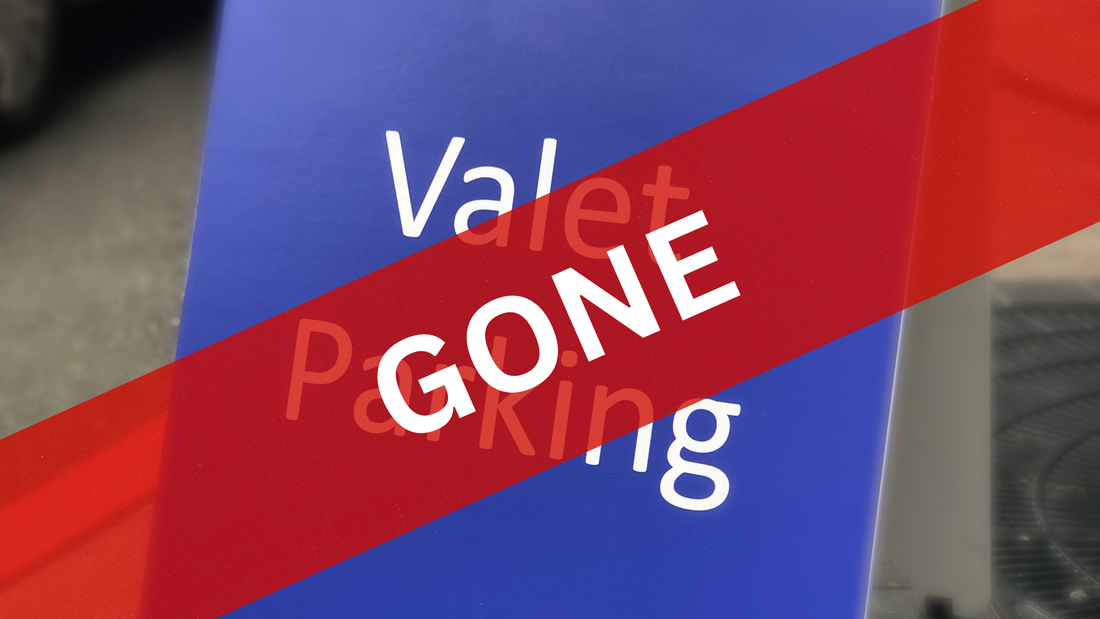
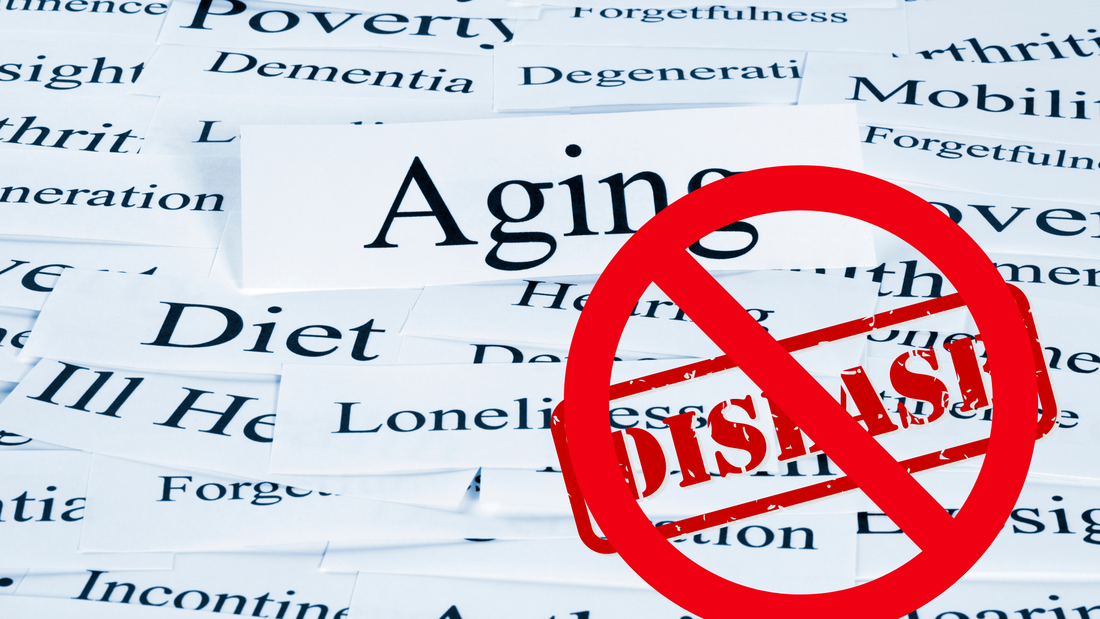
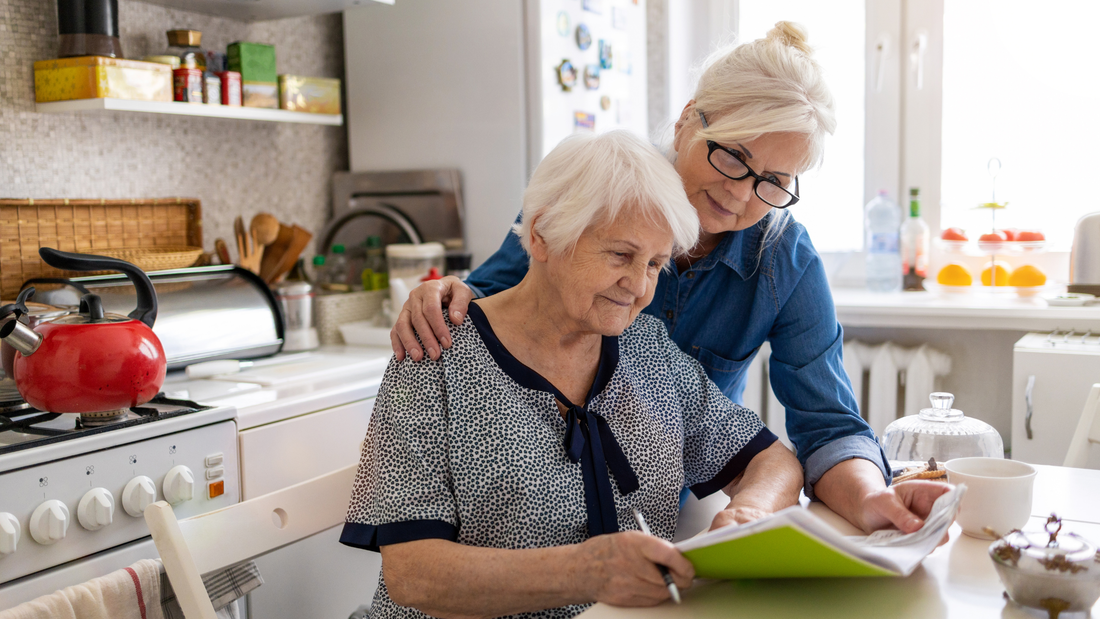

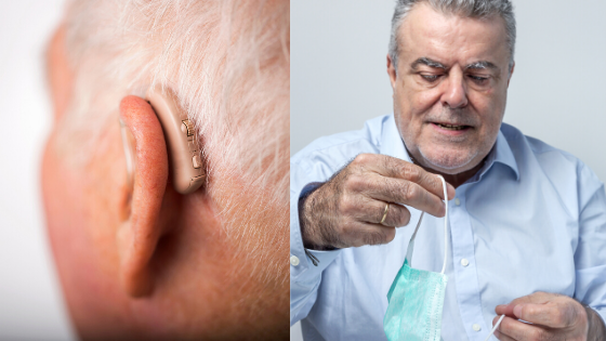
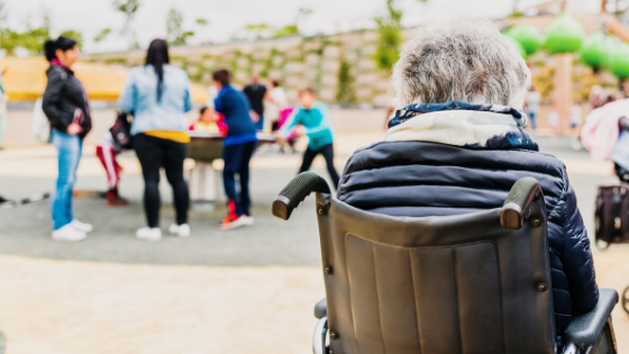
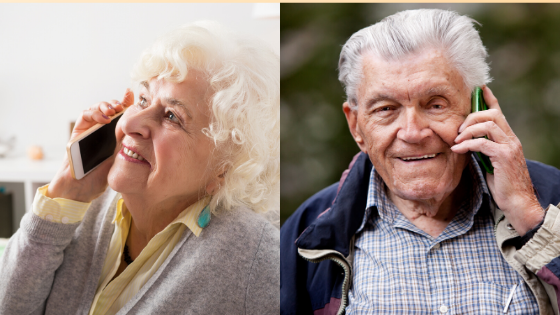
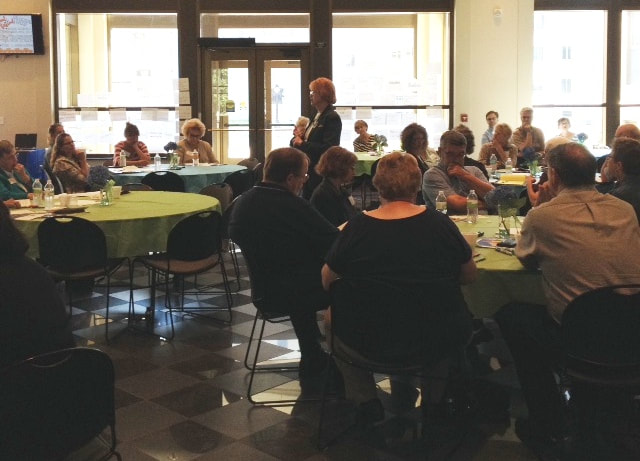
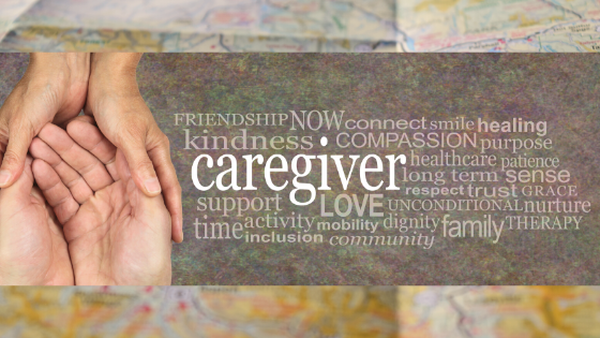
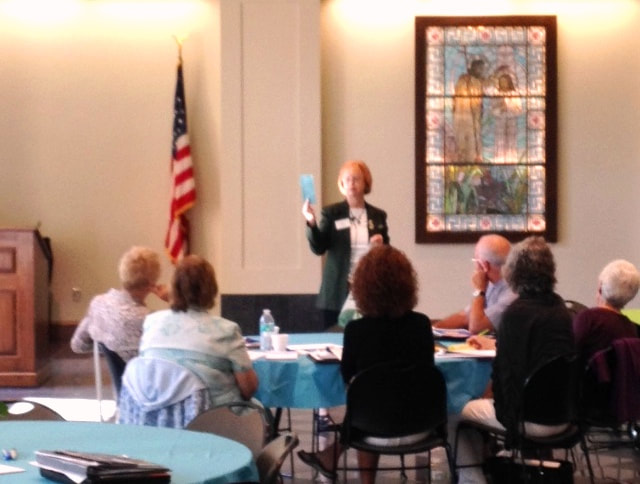
 RSS Feed
RSS Feed